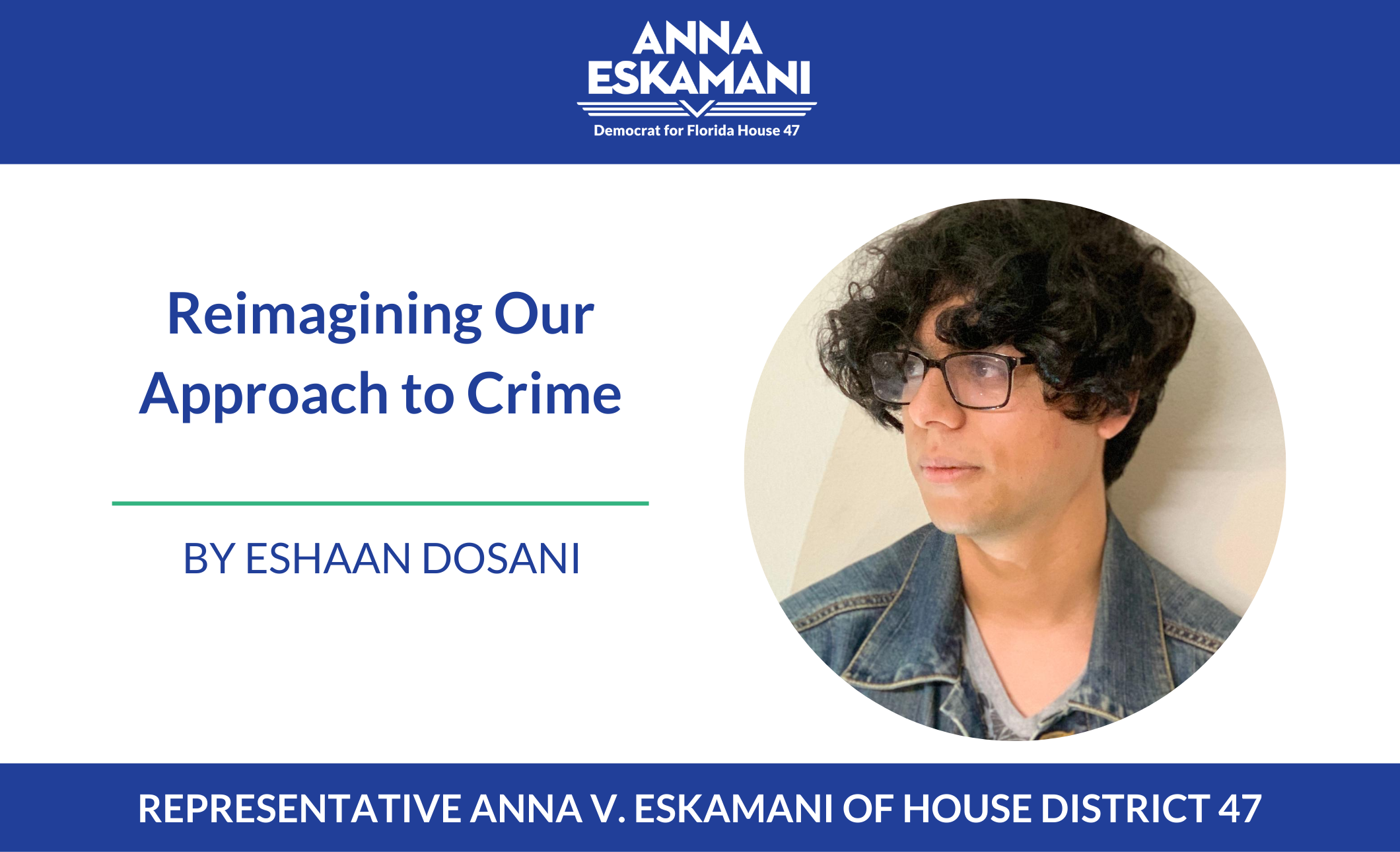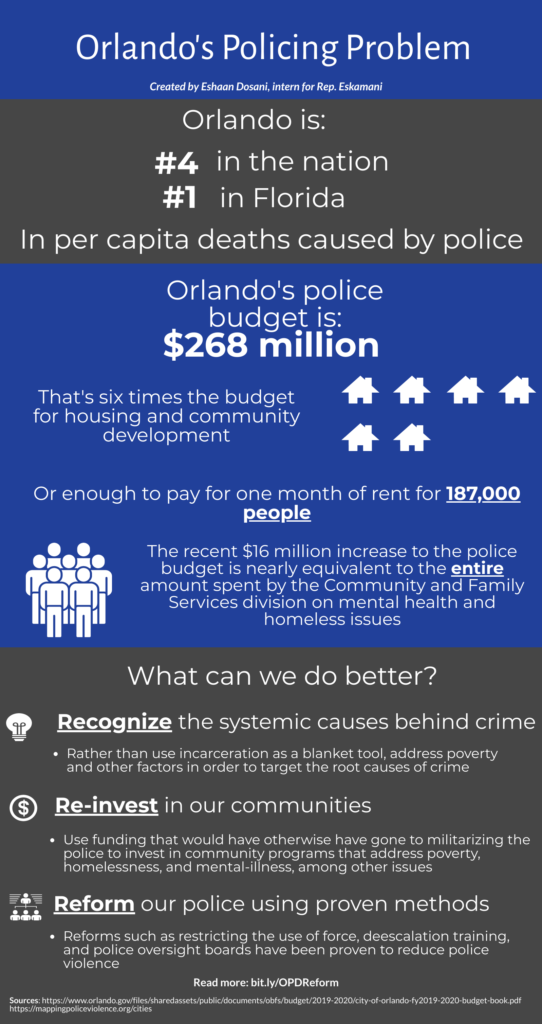
Eshaan is a summer intern for Rep Eskamani, a rising senior at Windermere highschool, and an advocate for criminal justice reform, economic justice, and fair foreign policy.
It feels like the past month has contained a decade’s worth of discourse. But seeing nationwide conversations about police brutality, systemic oppression, and the state of our criminal justice system, it’s important that we don’t forget that the problems currently being challenged aren’t far away, isolated to cities like Mineappolis or New York where the protests have been the most visible.
Orlando Police Department is 1st in Florida in the rate of police killings, and only 4th nationwide. Orlando and its surrounding areas also have a particularly poor record when it comes to jailing juveniles, and despite overall arrest rates for minors decreasing in Florida, Central Florida continues to have high arrest rates for first-time common youth misbehavior. Moreover, videos of police misconduct during recent protests have emerged showing officers unnecessarily escalating situations with peaceful protestors, including an instance where officers threw teargas at protestors who had their hands up.
Conventional wisdom states that ending crime requires investing in law enforcement –hire more cops to catch more criminals. As a result, police departments have had their budgets increase year after year, and we’ve seen greater levels of police militarization. Yet this approach can be ineffective at best and counter-productive at worst. Half of all prisoners and two-thirds of all jail inmates have a history of mental illness, and most leave jail without getting adequate treatment. Ninety-five percent of incarcerated people living with addiction will return to substance abuse after their release from prison. So much of our policy towards crime is built upon the idea that crime is a result of personal failings –not systemic problems that manifest themselves in unfortunate ways. Yet this attitude ignores the circumstances that allow crime to happen in the first place, and as a result, treats crime not as a symptom of a failing system, but as a disease itself. Reducing crime isn’t a simple matter of strengthening law enforcement. Investing in social services for the community, aside from directly helping people, also leads to lower levels of crime in the long run. While incarceration removes the problem from sight, it doesn’t change any of the factors that create crime in the first place.
Despite OPD’s flaws, it seems like the actions of hundreds of activist groups and thousands of protestors have led to some changes. Orlando Police, for example, announced a pilot program where police responding to mental health crises would be accompanied by a social worker, counselor, or therapist. Moreover, $4.5 million dollars from the police budget has been refocused towards community policing efforts and to train officers in dealing with mental illness.
It’s a step in the right direction, mirroring the actions of cities like Eugene, Oregon and Denver, Colorado. And while it certainly isn’t the end of the battle for fair policing, it suggests something worth celebrating: activism works.
Get Involved:
Orlando currently has a citizens review board that monitors police conduct and advises the police chief. Information on how to attend the citizen review board’s virtual meetings can be found here.

Sources:
https://mappingpoliceviolence.org/cities
http://caruthers.institute/study-shows-florida-continues-to-arrest-thousands-of-children-for-first-time-common-youth-misbehavior/
https://www.orlandoweekly.com/Blogs/archives/2020/06/03/peaceful-orlando-protests-on-tuesday-lead-to-tear-gas-after-curfew
https://skywoodrecovery.com/why-imprisonment-is-more-harm-than-help-to-addicted-offenders/
https://www.prisonpolicy.org/blog/2017/06/22/mental_health/
https://www.orlandosentinel.com/news/orange-county/os-ne-opd-proposed-budget-2020-20200720-jmkmeutelnd75dziid4yhhss7y-story.html
